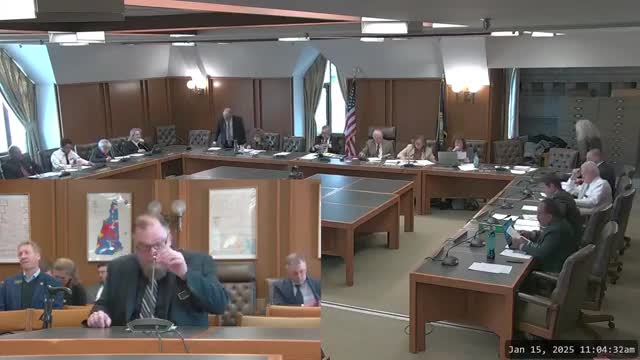Bill would let New Hampshire treasurer invest in gold and large‑cap digital assets; supporters call it inflation hedge, critics cite volatility and constitution
Get AI-powered insights, summaries, and transcripts
Subscribe
Summary
Representative Keith Ammon asked the committee to authorize the state treasurer to invest limited amounts of state reserves in precious metals and large‑cap digital assets, saying small allocations can hedge inflation.
Representative Keith Ammon told the committee House Bill 302 would add precious metals and ‘‘digital assets’’ above a specified market‑capitalization threshold to the list of authorized investments for the state treasury, and suggested the easiest implementation would be through exchange‑traded products rather than custodying bullion.
Why it matters: the proposal would expand the treasury’s investment toolbox and could expose public reserves to new asset classes. Supporters framed the change as a modest, optional hedge against inflation and declining purchasing power; critics warned of volatility and legal constraints.
Sponsor pitch and numbers cited Ammon argued that a small allocation of state funds to scarce assets like gold or Bitcoin could protect long‑term purchasing power. During the hearing he cited price movements discussed in testimony (gold noted as roughly $2,000 an ounce a year earlier and trading higher now; Bitcoin referenced rising from about $43,000 to roughly $97,000 over a year as described in testimony) and said allocations would be enabling, not mandatory.
Limits discussed in committee Members asked how the treasurer might use the authority and what safeguards would be required. Ammon said the bill contains or contemplates limits: witnesses and members discussed a proposed market‑cap floor for digital assets (spoken in the hearing as $500,000,000,000, i.e., $500 billion) to exclude “meme” or small tokens, and a practical allocation ceiling mentioned in the hearing was modest — several speakers and questions discussed single‑digit percentages (representatives referenced examples such as 1%, 0.5% or up to 2% of certain funds, and another passage referenced a 10% cap as an initial draft that could be reduced).
Public testimony — advocates and skeptics Tom McCarthy of Satoshi Action Fund and other witnesses urged the committee to enable treasurers to use digital assets and precious metals as a complement to traditional instruments, saying small allocations historically would have offset real‑term losses caused by inflation. Nicholas Slaney, an expert who served on a state commission, argued early adoption could be strategically valuable.
Opposition and legal questions Representative Kelly Potenza strongly opposed adding Bitcoin, citing a Constitutional clause about coinage and arguing that Bitcoin is speculative rather than a monetary instrument. Several lawmakers asked whether the treasurer or bonding agencies would accept the risk; Ammon said the proposal is enabling, not a mandate, and he described prior discussions with the treasurer as “curious” and potentially open to cautious engagement.
Practical safeguards and next steps Witnesses and members discussed custody and insurance, market‑cap thresholds, use of ETFs or insured custodian structures, and the likelihood that any practical implementation would be small and applied to long‑horizon funds. The sponsor said the bill would give the treasurer “tools in the toolbox” and that the legislature can set guardrails in subcommittee work.
Ending The committee closed the public hearing and signaled the matter will go to subcommittee for more detailed drafting and fiscal review.
